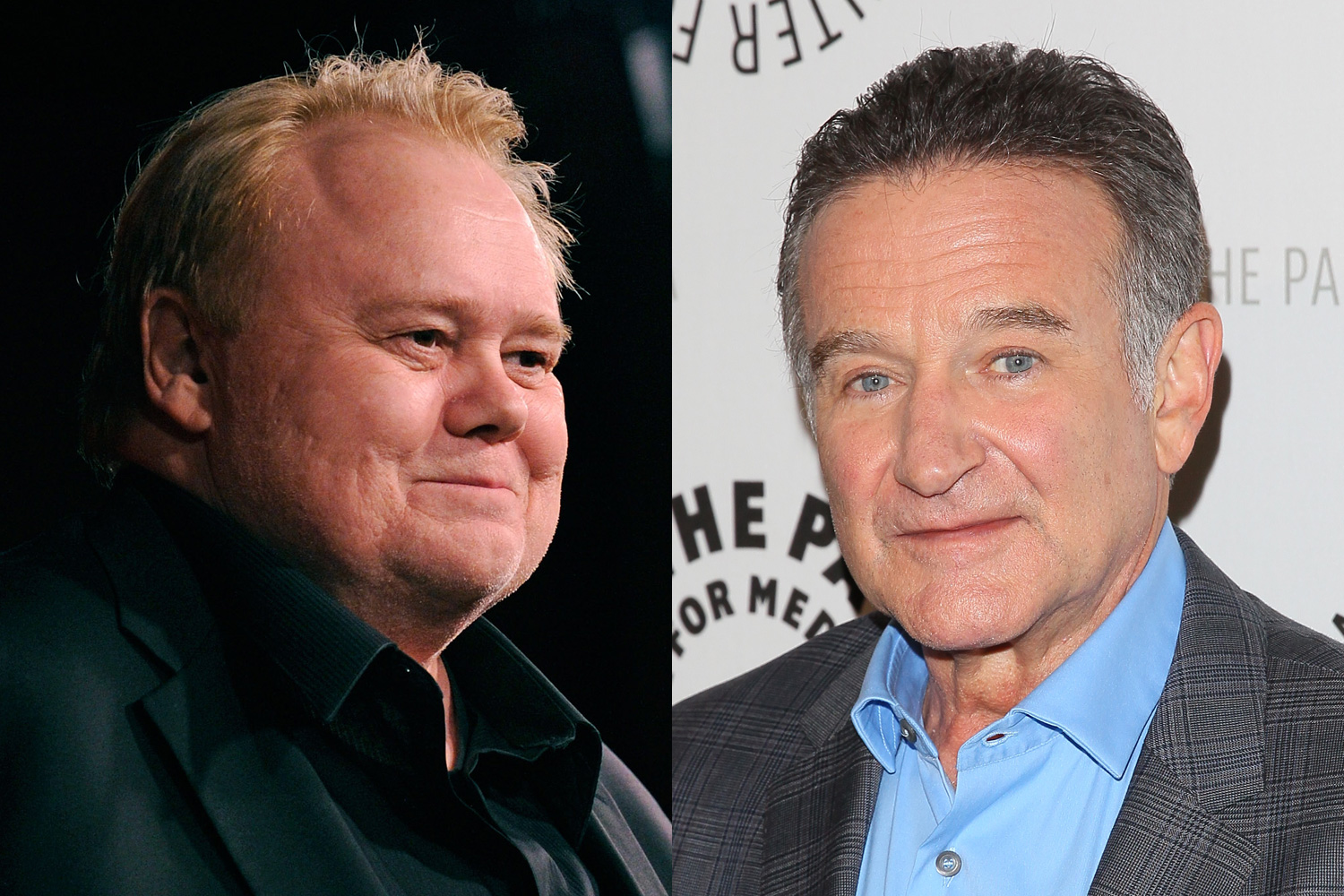
Robin Williams, who died Aug. 11 at age 63, was a tough act for any comedian to follow, says Louie Anderson, who remembers being backstage at comedy clubs listening to Williams perform. Here, Anderson honors the man who made audiences’ hearts “buzz” as well as their heads:
He was a national treasure as a comedian. He made a splash like a meteor on the Earth, and everyone wanted to see it. Whether you were very religious, very conservative — whoever you were, he could transcend all of your defenses and your barriers.
I met him first at the Comedy Store in the early ’80s. He would come in, go on stage and crush, just destroy the room. All of us were in the back room when he was on stage, and we knew comedy would never be the same.
He was pure fun, kind and gentle. He wasn’t just another comedian at the club — he was the comedian at the club. Unfortunately, you wished you were that comedian. There is part of every comedian who watched Robin — and it happened to me — that went, ‘I can’t do that, I wish I could do that. Oh my God, I hope I don’t have to follow him.’
Anybody who was anybody had his first album, [1979’s Reality…What A Concept], because you couldn’t believe he did it, and you wondered how he did it. He was a measuring stick among comedians. People would say [about other comics], ‘He’s no Robin Williams,’ like they used to say, ‘He’s no Richard Pryor,’ or, ‘He’s no Bill Cosby.’
He came through the television, he came through the movie screen — he came through loud and clear to your heart. Anybody can make your head buzz, but when you can make the audience’s head and their heart buzz, and make their heart open up and be completely vulnerable — I call it a Richard Pryor quality. Not too many people had it. The goal of every comedian is to open up everyone in the audience completely, so that you can share the humanity within each other.
His stuff was so fast. It was his presentation that was such a favorite … his characters, his voices, his persona that you were mesmerized by. The jokes were secondary to his bright light.
When he was done performing, the show was over. I felt sorry for the comedian who was going on next. Right now, I feel like the show is over.
More Must-Reads from TIME
- Why Trump’s Message Worked on Latino Men
- What Trump’s Win Could Mean for Housing
- The 100 Must-Read Books of 2024
- Sleep Doctors Share the 1 Tip That’s Changed Their Lives
- Column: Let’s Bring Back Romance
- What It’s Like to Have Long COVID As a Kid
- FX’s Say Nothing Is the Must-Watch Political Thriller of 2024
- Merle Bombardieri Is Helping People Make the Baby Decision
Contact us at letters@time.com